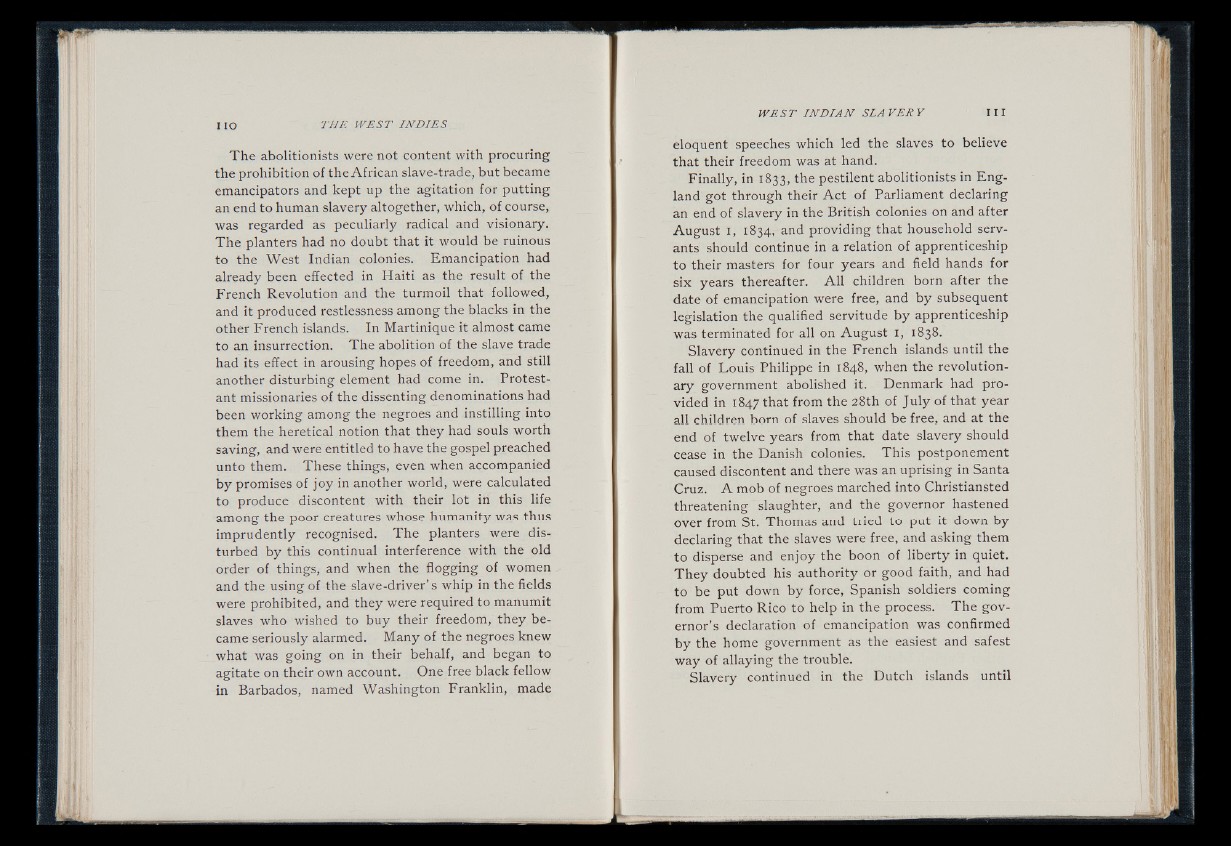
T h e abolitionists were not content with procuring
the prohibition of the African slave-trade, but became
emancipators and kept up the agitation for putting
an end to human slavery altogether, which, of course,
was regarded as peculiarly radical and visionary.
T he planters had no doubt that it would be ruinous
to the West Indian colonies. Emancipation had
already been effected in Haiti as the result of the
French Revolution and the turmoil that followed,
and it produced restlessness among the blacks in the
other French islands. In Martinique it almost came
to an insurrection. T he abolition of the slave trade
had its effect in arousing hopes of freedom, and still
another disturbing element had come in. Protestant
missionaries of the dissenting denominations had
been working among the negroes and instilling into
them the heretical notion that thfey had souls worth
saving, and were entitled to have the gospel preached
unto them. These things, even when accompanied
by promises of jo y in another world, were calculated
to produce discontent with their lot in this life
among the poor creatures whose humanity was thus
imprudently recognised. T h e planters were disturbed
by this continual interference with the old
order of things, and when the flogging of women
and the using of the slave-driver’ s whip in the fields
were prohibited, and they were required to manumit
slaves who wished to buy their freedom, they became
seriously alarmed. Many of the negroes knew
what was going on in their behalf, and began to
agitate on their own account. One free black fellow
in Barbados, named Washington Franklin, made
eloquent speeches which led the slaves to believe
that their freedom was at hand.
Finally, in 1833, the pestilent abolitionists in En g land
got through their A c t of Parliament declaring
an end of slavery in the British colonies on and after
Au gust 1, 1834, and providing that household servants
should continue in a relation of apprenticeship
to their masters for four years and field hands for
six years thereafter. A ll children born after the
date of emancipation were free, and by subsequent
legislation the qualified servitude by apprenticeship
was terminated for all on Au gus t 1, 1838.
Slavery continued in the French islands until the
fall of Louis Philippe in 1848, when the revolution-
ary government abolished it. Denmark had provided
in 1847 that from the 28th of July of that year
all children born of slaves should be free, and at the
end of twelve years from that date slavery should
cease in the Danish colonies. This postponement
caused discontent and there was an uprising in Santa
Cruz. A mob of negroes marched into Christiansted
threatening slaughter, and the governor hastened
over from St. Thomas and tried to put it down by
declaring that the slaves were free, and asking them
to disperse and enjoy the boon of liberty in quiet.
T h e y doubted his authority or good faith, and had
to be put down by force, Spanish soldiers coming
from Puerto Rico to help in the process. T he go v ernor’s
declaration of emancipation was confirmed
by the home government as the easiest and safest
way of allaying the trouble.
Slavery continued in the Dutch islands until